#maedhros edit
Photo






But Maedhros laughed saying: “A king is he that can hold his own or else his title is vain.”
For @sublimepaperfury >>> want one?
#tolkienedit#silmedit#oneringnet#tolkiensource#tuserosie#usersari#usertilions#maedhros#maedhros edit#tolkien#silmarillion#mine#posters#250 celebration edits#requested#150
274 notes
·
View notes
Text

"The eternal life
I see it still burns
Each night I cry in pain
Alive
Though the end appears my friend
And blood tears I cry
You've searched and you've found
Cut off your old friend's hand"
-Blood Tears by Blind Guardian
Nelyafinwë Maitimo Russandol, Maedhros the Tall, Lord of Himring, former High King of the Noldor
#ive decided the whole house of finwe will get their own moodboard#starting with the house of feanor and then working down the line#im excited!!#maedhros#nelyafinwe#maitimo#russandol#maedhros edit#silmarillion edit#silmarillion aesthetic#silmarillion moodboard#my edit#silmarillion
82 notes
·
View notes
Text
Ok, so Noldolantë, "The Fall of the Noldor" is a lament composed by Maglor about what happened before, during and after First Kinslaying at Alqualondë. It's such a good song that it's played regularly in Aman and Valar listen to it often (I swear, I swear it was in the Silmarillion I just can't find it now).
It's also a more or less common fanon that Maglor continues writing Noldolante through the whole First Age. Makes sense - it's about fall of the Noldor, and Noldor did a lot of falling back then.
Headcannon time: So my first thought was that Noldolante must a long, long, long epic of a song. So it probably has many parts, right? Iliad has 24 books/parts, somehow I think Noldolante would be at least just as long, and there are longer epics. And again, just like Iliad, unless you're a scholar, in the daily life you don't really listen to/read the whole thing, just reread and repeat the most dramatic fragments. What I'm trying to impress upon you all is that the story would have different segments, or chapters, if you will.
And if Maglor continues to write the story during the FA, there would absolutely be a moment in the lament where the OG Noldolante becomes Noldolante 2, and even Noldolante 3. There may be the same musical motif or something, I decided that Maglor IS that good of a bard to keep it all consistent enough so you know it's all the same story, but the style changes a lot - it's been 400 years in the making, let The Music Elf have fun!
So, Point 1: Many, Many Parts, basically Maglor's FA WIP
My second thought was that, while Feanor invented his alphabet, elves learned their history mostly through oral tradition aka songs and spoken stories. Noldolante is definitely a historical record, where a historical event was archived for future generations.
(It was a also a way to deal with grief, guilt and blame Maglor and all Noldor have faced regarding First Kinslaying - free therapy! But that's not what this post is about)
Archived.
My 2.5 thought was that Noldolante isn't just recallings of how pretty and horrified the beach looked during the murdering or how mad and sorrowful the sea was at everyone during the voyage or even how awesome and charismatic Feanor looked during his speeches that every single Noldo was ready to fight Morgoth barehanded in his name - no, this is a record of who killed who, who got killed by whom, and how.
Noldor and Teleri knew each other (were friends, even!) before the First Kinslaying, so I'm confident that after a lot of interviews, detective work, and cross-referencing, Maglor could and would create a very good... name list. Practically every Noldo and Teler present during First Kinslaying would get a stanza in a song, more if he killed someone, most if he killed many people. Killers and killed would show up twice, first in a fragment listing the killers and their victims, then in a part listing the victims and their murderers. Basically it's the same thing twice, but from different POVs. With when, where and how included.
(It was seen to be in bad taste to compare kills during Maglor's Regency, when most of his interview-part work happened. People did it anyway. There were a Saddest Kill, Funniest Kill, and Weirdest Kill discusions. There was a Tier List. These were weird times to be a Feanorian Noldo.)
(It WAS in Bad Taste, but at least people talked about it. I cannot stress enough how much free therapy this lament provided)
(Little did they know, when Teleri started getting reembodied in Aman, they had very similar discussions, but more in a "I can't believe he killed me like THAT" way. Long, long, long after the First Age. Noldolante is a gift that keeps giving)
So, Maglor had all the historical grith and no common shame to create a "We Killed All These People And We Feel Bad About It" banger of a song, and every Noldo had a very personal reason to at least remember the fragments they are in. It's a hit on a scale never seen before.
(I'm not sure how to tackle the issue of Nolofinweans and Arafinweans learning about Noldolante after crossing the Ice. But there were discussions. There was anger, there was "????", there was controversy. Basically, the song got bigger and bigger rep no matter what your opinion on it was. By the time of Mereth Aderthad it was an important cultural and political piece and at least Fingon's forces were included in the main song. It had parodies.)
Point 2: Archive Function/Kill count storage. Cultural phenomen, every Noldo included
This is where my personal nonsense begins: Main Noldolante was done, there was nothing more to say about First Kinslaying, all killings and deaths were well documented.
But the Siege started. And the Noldor kept dying.
It was less dramatic than it sounded - between the big battles the siege was maintained, but orc raids also happened and sometimes one to few Noldor died in skirmishes. The legal procedure was to document the death of a fellow elf and send a word to king Fingolfin. The cultural procedure, technically started by Feranorians but adapted by many more, was to send the name, common characteristics and cause of death to Maglor's Gap. After few months, King Fingolfin would send reinforcements, short condolences and financial compensation if they had family. After few months, family of an elf would also receive a personal lament for them and a place for them in a Noldolante.
Yes, every lament Maglor created in that time was technically part of the Noldolante. Noldolante 1.5, if you will. Laments make in that time were very customized, and simpler than Noldolante Main, but were still considered a part of the same song. Of course, nobody was expected to know and remember laments for every single Noldo, younger Noldor born in Beleriand could even only know fragments about their family members. Only Maglor would ever know Noldolante in full, but it was understood that everyone had their place in The Song.
The results of Great Battles were harder to document, but Maglor did that. Of course, Dagor Bragollach was hard on him personally, but he worked his way through.
(High King Fingon forbade creating laments for his father. There were no songs for Fingolfin. Apart from in Noldolante, of course. Of course. Maglor did not share the lament with anyone, but he sat long hours and many nights with a blank paper before him, looking at the candle flame and thinking of the past and the future. The song unsung, but there)
Nirnaeth was... Maglor was never more hated and more approached at the same time than then. Still, Noldolante grew and grew, as if people knew the end was near.
It was Second Kinslaying that destroyed the myth of Maglor's song. Feanorians didn't know the Sindar they killed, but surely, they couldn't just left their names unmentioned like they did with orcs? So, Noldor talked, but the battle happened in caves - it wasn't uncommon to find dead bodies in empty rooms, with no witnesses to what happened. Surviving Sindar didn't want to share any names, even when Maglor strong-armed some into talking with him, and good for them. Maglor made a big lament anyway. Maglor, wild, with no shame and dead brothers, with legacy crumbling around him. Noldolante, with holes.
After Third Kinslaying, Noldor didn't want to talk. Lament for Sirion didn't have any names. Clearly, songs weren't a way to go anymore, it was always about live witnesses. And so Maglor raised the twins.
Lament for Maedhros was sung repeatedly. There was no one to hear it.
Point 3: Only Maglor knows Noldolante in full. But that doesn't matter, because everyone knows the important part: the Noldolante is finished. The Star of Hope rises in the West and the story goes on. The Fall has ended.
#silm#silmarillion#noldolante#maglor#yet another post that went in different direction than I planned#started with meta went into headcannon and ended with fanfic angst#I wanted to end it with crack!!!#I mean. I mean#it all makes kind of some sense if we're talking about elves here#but guys Noldor had Men and Dwarves as allies#Maglor would want them in his Historical Record song#I think with Dwarves they would mainly refuse when he asked them if they wanted a part in Noldolante#so maybe he would only get some allies and personal friends of Maedhros in#but Men#guys Men. they would agree and they would make lists and it would become Clown City so fast#but Sons of Feanor aren't known for their ability of knowing when to quit#so Maglor has a Noldolante 3.0 Standard Version with 254 Parts that has Elves and an Occasional Dwarf Only#and Special Version Noldolante Deluxe Extra Edition with 547398134 Parts that includes Men#everyone is included you don't have to die in battle#all common causes of death have a dedicated jingle to them#to the point you know a man's cause of death after 3 notes#these parts of Noldolante well the music bit actually survived into the Fourth Age#the words are gone but the music is played at funerals in some places#The Noldolante Main survived only in parodies though#actually Finished Noldolante is a very good thing huh#as in no more Fall of The Noldor#they can finally catch some break#I believe that during Maglor's Regency Era all Noldor did was Processing. and breeding horses.#Noldolante? more like Maglor Finally Discovers Shame: A Story#I think some personal revelations on legacy and connections between children and life's works would be made
242 notes
·
View notes
Text
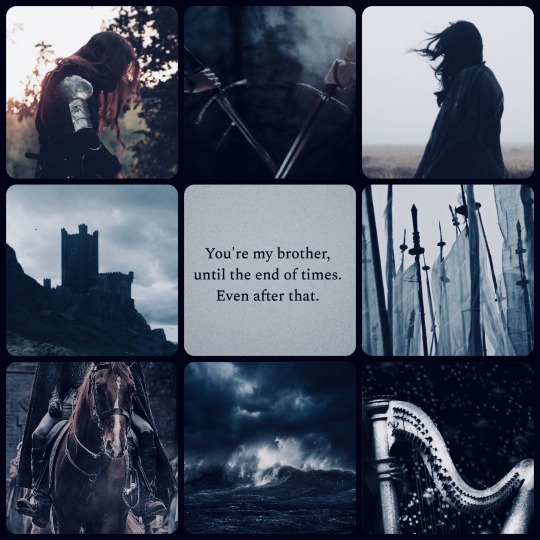
Bonds for @maedhrosmaglorweek
146 notes
·
View notes
Text









This post Angband board is one of my very favorite visual Maedhros pieces I’ve done and for the past two years I've posted an edited and revise version!
Maedhros in Angband is perhaps my favorite Maedhros but brutal, ruthless and traumatized warlord Maedhros in Himring is such a close second. In addition to the weight of the oath, I'm obsessed with quest for revenge; ruthless, coordinated, and at times contained by the wisdom of his councilors or even kin but it is never impersonal
x x x x x
Visual notes:
-for anyone worried the photo of the scars is from makeup artist Kristyan Mallett
-I’ve talked and thought a lot about snow leopards as symbols and guardians of Himring; beautiful but heavily guarded and deadly. More in the himring tag!
-Look I know the bottles are cliched in boards but I like that one for the corrosive word more than regret plus it fit the color scheme
73 notes
·
View notes
Text
After they got out of Mandos, Celegorm, Caranthir and Curufin started a band. When they announced their first public performance Maglor was so proud that finally their younger brothers started doing something sensible.
Half of Tirion came to the concert, but instead of harp music or something, they had invented rock music and stuff like that. After the performance, Maedhros had to resolve at least twenty different political crises. (He swore that he hadn't been that busy since Nagothrond.)
Also, rebolg and tag the most offensive songs (the song with the most references to murder and burning things) that made Finarfin choke on his wine and Fëanor cheer them on.
#I got this idea when seeing a fëanorian edit to “Trouble” by valerie broussard on YouTube#but I was also thinking of “how villains are made” by Madelen Duke#celegorm#caranthir#curufin#feanorians#sons of feanor#feanor#finarfin#maglor#maedhros#silmarillion#the silmarillion#valinor#tolkien elves#songs#my post
139 notes
·
View notes
Text
The Sons of Fëanor as stuff me and my siblings have said:
Maedhros: You know, sometimes I understand a certain someone pulling a sword on his younger sibling.
(Everyone at) Maglor: I cannot with any honesty say you sing badly but could you please stop?
Celegorm: You've got such thin fingers - do you know I could easily break one?
(excuse me? - this sounds vaguely threatening)
Caranthir: I can't wait till I go to uni and move out to a small apartment of my own; one with just two or three rooms would be enough...
Amrod: No, I can't give you back your coat; it's my last memento of my sister.
Amras: Mum, he won't let me put a willow catkin up his nose!
#my post#sons of Fëanor#house of Fëanor#character lists#tolkien#Silmarillion#silm#Maedhros#maglor#celegorm#caranthir#amrod#amras#oops I forgot Curufin#edit: also yes the benefit of growing up in a tolkien knowledgeable household is that you can in fact jokingly reference Fëanor#in your sibling quarells
49 notes
·
View notes
Text
the fairest stars: post iv
Beren and Lúthien steal two Silmarils, more sons of Fëanor than anyone ever needed or wanted get involved, things go extremely sideways: you know the drill. You can find the first 18 parts of this bullet point fic on AO3 here, and parts 16-20 on tumblr here.
We're starting out part 21 with a timeskip!
One year after the fall of Himring, north Beleriand remains bitterly contested.
The East is overrun. In Barad Eithel's great war-room the map of Estolad is covered in black arrows stretching from Lothlann down to the Andram Wall.
Caranthir and Amras maintain a last stronghold on Amon Ereb, with the people of Himring who fled there after its fall; but Ossiriand, they fear, will only remain undefiled so long as Morgoth's attention does not turn towards it.
Their Eastern allies, too, are unimpressed. Bór and his young sons were all slain not long after Himring burned; the few of their people who escaped the orc-raids have joined themselves to Ulfang in Thargelion, but they are none too friendly to the Fëanorians these days.
"And Nelyo says I'm bad at making allies," Caranthir remarks.
[yeah he's in this now. damn it why will they not stay in their place.]
"I wouldn't say this is Nelyo's fault," Amras says quietly.
It is a debate held, in one form or the other, in every free kingdom in Beleriand.
But anyway, the East does not seem to be Morgoth's main concern for now.
It is Hithlum, Fingon is sure, where the next assault will come.
Hithlum, the realm of the High King of the Noldor; Hithlum, where he reigns who once humilated Morgoth so thoroughly; Hithlum, where Maedhros holds a Silmaril yet.
If the last true stronghold of the Noldor falls—
And he is facing plenty of internal pressure, too.
His lords – many of them survivors of the Grinding Ice, and arch-loyal followers of the House of Fingolfin – are less than impressed by the rumours that have reached them of the fall of Himring, and Maedhros' actions there.
Fingon has tried to quell the whispers as best as he can. But it is impossible to deny the fact that the attack took Himring by surprise because its patrols were cancelled on Maedhros' orders, or that Maedhros left the field as their position worsened.
The healers who treated Maglor's stab wound have not been quiet, either, about the fact that it was an elvish blade that caused the injury.
And some of those who were at Himring have heard that Maglor was found in a pool of his own blood with Maedhros, subdued too late, unconscious beside him—
If only they knew, Fingon thinks furiously, they would not cast sly aspersions on his judgement and his taste in friends. They would not stop talking of anything consequential when Maedhros drew near, as if he is not to be trusted with the secrets of the war.
Of course when he dares to suggest to Maedhros that this might bother him, Maedhros laughs and says, "Finno, do you think this the worst humiliation I have ever endured?"
So. There's not much Fingon can say to that.
His father was a diplomat, a politician, a builder of alliances. Fingon is not doing a very good job of living up to that legacy.
Thingol returned no response to the letter Fingon sent him, informing him of Curufin's disappearance.
In fact, Thingol is kind of just Done.
So the Noldor turned out to be faithless. What else is new?
Also he didn't really want Curufin's head anyway. Where would he even put it?
Fingon cannot give him what he truly wishes for: his daughter.
In Lúthien's absence old age has fallen upon him, who has lived unwithered for long Ages of the Stars since his birth at distant Cuiviénen.
Melian sings no longer. The people of Doriath, who have known little but peace and splendour since the Girdle was first raised, begin to wonder if their blessings have been withdrawn.
So it is a Menegroth much changed into which Beren and Lúthien walk, hand in hand, one afternoon.
Their return is met with both joy and some consternation. Youth comes back to Thingol at the touch of his daughter's hand; but Melian knows that she will never smile again.
Lúthien bears it all, the feasts of celebration at which none can look her in the eye, her father's overwhelming gladness and her mother's sorrow, the halls that ring yet with the memory of her grief, for exactly two weeks; then she announces that she and Beren are leaving.
"Daughter," Thingol protests, "you have only just returned to us – and soon—"
(Thingol does not know how he will ever handle the parting that is to come.)
"Will you not stay?" he asks. "This is your home."
Lúthien is not sure she knows what home means any more.
"I am sorry," she says, regretful but firm.
The next day finds her and Beren walking through Brethil, debating their next course of action – just as they did not so very long ago, when Celegorm and Curufin attacked them in the woods.
It is of that little skirmish that Beren is thinking now.
"They say Curufin is still out there somewhere," he argues. "It mightn't be safe—"
"I sang Morgoth himself to sleep," Lúthien cries, "and you think I can't take Curufin Fëanorion?"
"Tinúviel," Beren says, with a laugh, "I do not think there is anyone you can't take."
Lúthien allows herself to be placated.
"I am not suggesting we dwell alone in the wilderness," she says; "you made your earlier thoughts on that very clear. But I – I cannot go back to being Doriath's Princess, Beren, as if every part of me is not changed irretrievably since first you called my name, as if – as if you didn't die there, and—"
"Sweetheart," says Beren, kissing her forehead. "It wasn't permanent." And when she chokes out a little laugh through her tears, he goes on, "I know you do not wish to stay in Doriath. But we must choose somewhere – and somewhere safe. It seems as though the Enemy's reach has lengthened in the time we were, um, gone."
"I thought to go to Ossiriand," Lúthien says. "My kin the Green-elves still guard those lands."
"But only those lands," says Beren. "Estolad and Thargelion are overrun. The sons of Fëanor keep no watch upon the Eastmarch. If Morgoth were to learn that you dwelled there—"
"I'm not afraid," Lúthien says. "And even if I were – am I never to venture beyond the Girdle again, for fear of him? Is all my father's kingdom to be naught to me but a prison, as Hírilorn was? I cannot stand it – I will not."
Beren takes both her hands in his one and looks at her. "Tinúviel," he says, very seriously, "I will never cage you."
Oh, he knows her. What a wondrous, terrifying thing, to be understood so completely.
Perhaps Lúthien is still a little delirious with the rush of living once more, for she dips her head to capture Beren's mouth in a delighted kiss, and for a time they both forget all other matters.
Plucking strands of grass from her hair some time later, Beren says, "I have another idea."
"What! I thought I argued my case quite passionately," Lúthien teases.
"You said you thought of dwelling among your kin," says Beren. "What of going to mine, instead?" And, when Lúthien shoots him a puzzled look, "The House of Bëor is mostly ruined, but there are still remnants of my people who escaped Dorthonion ere its fall. Some of them dwell nearby, with the Haladin. And others went north to Dor-lómin – my little cousin Morwen is the lady of that land now."
"I do not wish to stay in Brethil," says Lúthien; "it is rather too close to Menegroth for my tastes. But the Land of Echoes, on the other hand..."
Her eyes are alight with that same fanciful gleam they used to get when Beren told her stories of the world outside the Girdle, of holy Tarn Aeluin and the dread Ered Gorgoroth alike.
You would think, Beren muses, that she would have had enough of adventure by now.
"I have," says Lúthien, catching his thought. "We are to live a very peaceful and retiring life. I insist on it! That is what I told Mandos we deserved. None shall dare assail us, in Dor-lómin." She rolls the name on her tongue as if trying to taste it.
"They call it so because of the terrible cry of Morgoth when Ungoliant assailed him," Beren tells her, "not for any sweeter music."
Lúthien laughs and flings her arms around him. Oh, his living body warm and solid against hers! It is a gift she does not intend to waste.
"Luckily," she says, "I am good at changing the melody."
Another conversation between lovers:
"Do you think it could be done?"
“I have already told you what I think.”
"But you haven't explained," Fingon persists, "you have only looked at me dolefully and proclaimed that it is not possible."
"Well, it is not," says Maedhros. He is lying curled in Fingon's arms, their ankles hooked together, and he is loath to disturb their contentment with arguing. Keeping his voice measured, he says, "If our strength were doubled I do not think it would be enough, Finno."
"The attack will come either way," Fingon says, also without much vigour. They have had this debate so many times now that it is become well-worn. "Why not meet it head on?"
"Because you have a defensible position here," Maedhros says patiently, "and a greater chance of holding than you do of storming the gates of Angband."
"My father did it," Fingon mutters.
"Your father died," Maedhros says, voice suddenly sharp.
Fingon looks at him. "Don't look so worried, beloved! I am quite turned off the idea of wasteful heroics these days."
"Then look to strengthening your defences," Maedhros says, "and drop this fool notion."
"But if we did try," says Fingon, "if we united all the Free Peoples under one banner, and marched on Angband together – think what we could achieve!"
His eyes are bright with hope. Maedhros hates to crush it, but crush it he must.
"Finno," he says, "the East is lost. My brothers do not have so strong a position in Amon Ereb that they can afford to march north to join in a war that could prove ruinous. Bór and his people are dead almost to a man. Belegost will no doubt have heard the rumours—"
Fingon glances at him sharply, but he speaks without bitterness. Which is concerning in itself, but Fingon decides to let it slide for now.
"—and there is little help to be expected from other corners," Maedhros continues. "Doriath has strength to spare, but Thingol hates you."
Fingon shifts uncomfortably. He never actually told Maedhros why Thingol hates him now.
"Nargothrond," he says, to change the subject. "Orodreth will answer to his High King."
"Orodreth!" says Maedhros, dismissively. “A king too ruled by the whims of his people. If he had any spine he would have turned my brothers out of Nargothrond immediately, and Finrod might have lived.”
If Fingon were crueller he might say, You didn't manage to control your brothers that well yourself. Instead he says, "But the people of Nargothrond are many and valiant. We should not discount them."
"If Nargothrond wishes to stay out of the wars of the north," says Maedhros, "I think it would be prudent to allow them to do so." There is a thoughtful, uneasy look in his grey eyes.
Fingon gauges it correctly and says, "Are you worried for your nephew?"
Maedhros looks at him unhappily. "Everyone in Beleriand knows what a mess – Curvo – made of – everything," he says.
(A year might have passed, but Maedhros still does not much like to speak of Curufin.)
"Tyelpë is safe in Nargothrond, where his father's deeds cannot taint him," Maedhros says. "I would keep him so." Then he shrugs. "But my opinion carries no weight now, beloved. Do as you will, and I will support you, for all that is worth."
"It carries weight with me," Fingon says fiercely. "And I am not ashamed to say so. But you have not yet heard the key element in my plan."
Maedhros smiles despite himself, propping himself up on his elbows so that he can keep his eyes focused on Fingon's face. The mass of his silken hair is pooled on Fingon's bare chest. "Go on, then," he says, indulgent.
"Gondolin," Fingon says triumphantly. "My brother took a third of our host with him when he disappeared, and yet more of the Sindar went with him. They have lived in peace for more than three hundred years; their numbers must be great."
Maedhros does not seem as delighted with this idea as Fingon is. "Finno, you don't know where Gondolin is."
"The Eagles bring them tidings, clearly," Fingon points out; "else they would have opened the leaguer and come to our aid when they saw the fires of the Dagor Bragollach on the horizon."
Maedhros frowns, attempting to parse this extremely backwards logic. Eventually, he says, "If Hithlum falls, Gondolin will be the last stronghold of the Noldor in the north. I do not know if its position should be risked."
"All war is risk, beloved," says Fingon, "and if I were to call upon my brother, Hithlum will not fall."
Maedhros says, as if he has been saving this blow for last, "Finno, if you call upon Turgon, will he even answer?"
It has been more than three hundred years, since Fingon last saw his brother.
“Do you think he won’t?” he asks, more sharply than he means to.
(Turgon didn’t tell him he was going. He didn’t tell anyone. He just – vanished.)
Sometimes Maedhros thinks things were easier during Maglor’s long convalescence, when his only concern was his brother, when every sleepless night was because Maglor needed someone to sit up with him and every meal was whatever invalid's food Maglor could be persuaded to choke down – when Fingon was his strength and steadiness, and Maedhros could yet wrap his blue cloak around him like armour.
Selfish – selfish. Maglor is better now, and Maedhros is so, so glad; and Fingon cannot always be his strength. Sometimes Maedhros must be his.
"I am sure he will," he says, contrite. He presses a kiss to Fingon's tense jawline. "I just don't think it wise to ask him."
Fingon sighs and puts his arms around Maedhros. "Fine," he concedes. "Perhaps you are right."
But later, when they have extricated themselves from their warm tangle of limbs and risen for the day, he sits down to write a letter.
A few days later the High King's messenger, having ridden swiftly along the Ered Wethrin and into Dor-lómin, nearly collides with a small child playing near the road.
"Be careful!" cries Lúthien, dropping Beren's hand and rushing forward to snatch the child up.
The messenger gapes at her, for it seems to him as though she has materialised out of the shadows themselves. Then, when he gets better look at her beauty, he gapes even more.
Lúthien is not paying attention. All her focus is on the little golden-haired creature in her arms. "That was nearly very dangerous for you, wasn't it, sweetheart?" she coos. "But you don't seem frightened at all. What's your name, dear one?"
The little girl giggles and hides her face in Lúthien's sleeve without answering.
Beren feels a little dizzy, looking at the picture that they make, and at the bright tender look on his wife's face. Someday, he tells himself, someday.
He looks around. The messenger has dismounted; it seems the great house up ahead is his destination. A house of lords, clearly, surrounded by gardens as lovely as any in the chilly northlands, and with a bubbling stream running just past its walls.
Well, here they are.
He is pondering what the etiquette is here – should they knock? wait here until someone spots them? – when he catches sight of a second child, a little older, dark-haired, watching them intently from around a tree-trunk.
"Good day, lad," Beren says gravely. "Might I ask your name, and those of your parents?"
The boy regards him with suspicion for a while, before he finally says, "I am Túrin son of Húrin, and that is my sister Lalaith."
(One little-appreciated consequence of the fall of Himring: for the last year, Morgoth's attention has been on the final desecration of the March of Maedhros. He did not have time to send the Evil Breath to Dor-lómin.)
"Lalaith!" Lúthien says, delighted. "What a fitting name."
"Then, son of Húrin," says Beren, "we have reached our destination indeed. Might you do me the honour of introducing us to your parents?"
Túrin looks unimpressed. "Who are you?" he asks.
"My name is Beren son of Barahir," says Beren, "and we are kinsmen, son of Morwen."
Túrin frowns even more. "How do you know my mother's name?" he demands. "And Beren is dead."
Kind of hard to argue with that.
Before Beren can come up with a suitable response there is a small noise from the direction of the house: the children's mother has come out to call them in for the evening meal. She stands so still she might be made of stone, were it not for the wind whipping up her dark hair behind her.
Beren finds his own mouth is very dry.
He buried Baragund his cousin, and avenged him; and he has not thought of his slaughtered companions for a long time.
(There's only so much survivor's guilt one person can have, and it is usually the screams of Finrod and his Ten that haunt Beren's nightmares.)
Morwen is not now the thirteen-year-old he remembers, her face sterner and more sorrowful, but somehow she is the image of her dead father.
"Hello, little cousin," he croaks out.
Morwen stares at him.
Lúthien comes to the rescue. "You must be the lady Morwen," she says warmly, setting Lalaith down so that she can drop into a graceful curtsey. Her Taliska is hesitant, but beautiful. (Everything about Lúthien is beautiful.) "Beren has told me so much of you. And your children are charming."
"Beren's dead," Morwen says at last, shakily. "And – you—"
"I was dead," says Beren, "but now I'm not. I don't know how to explain it, cousin, but—" He holds his hand out to her, letting the Ring of Barahir gleam green upon his finger in the setting sun. "It really is me."
Morwen makes another small sound, swaying where she stands. Her hand rests on her son's dark head as though he is the only thing keeping her upright.
"Mother?" Túrin says nervously.
Before things can get any more awkward the lord of the house comes out to seek his family, perhaps wondering what is taking them so long. "Morwen," he says quietly, seeing her stiff posture.
But Morwen takes a breath. "We have guests, Húrin," she says, composed again. "This is my kinsman Beren Erchamion, and his – and his wife, the Princess of Doriath."
Lúthien turns her dazzling smile on Húrin. "A pleasure to meet you," she says gaily. "But call me rather the Lady of Dorthonion."
(to be continued)
#silmarillion#my fic#bullet point fic#the fairest stars#beren#luthien#fingon#maedhros#russingon#here we gooo!!#very excited for where we're going with this arc#this thing definitely needs more editing but I lost patience so have it now#say hi to a bunch of new characters (more are coming later too)#and a new set of political problems#also guess who DOESN'T appear here for the first time in 21 parts I'm as shocked as you are#(he'll be back next time dw)#also nobody died or got stabbed or had a breakdown or got nearly executed or like. even stubbed their toe here so BE GRATEFUL
236 notes
·
View notes
Note
Hi!
I love your work!! Your art is very pretty. Do you have a specific idea of how old everyone is ? Do you lean more towards canon or do you have your own dates in mind ? If don’t wanna a answer it’s ok!
Hope u have a nice day
(Remember to drink water!)
hiiii nonnie!!! thank you for checking in, and im happy u like the stuff i put out!! when it comes to ages, it's difficult to answer sometimes bc of the way professor tolkien's timeline is-- it makes gauging one singular place where most of the cast can be compared something that makes my tired brain go 😵🤧🤕 but i love the prompt youve given! and thus heres my attempt at it
with most of my tolkien stuff, i always try to stick to canon wherever possible emphasis is on try lmao and the topic of ages is one such place. i do make exceptions to the Professor's canon sometimes for a few reasons: 1) i like some of the scrapped ideas in his drafts, or 2) i just prefer other options. with ages, i think the only charas with canon-established ages i deviated from are fingolfin, finrod, turgon, and aredhel. i try to keep cases like these minimal tho, so i hope it doesn't bother anyone too much... 👉👈
anyways i figured just dropping a list of numbers would be kinda boring to look at so heres an illustrated guide to what the ~rough~ ages of the finweans are in my head whenever i write or draw. Y.T. 1495 (the year Finwe dies) is the controlled medium ive used to enable a fair comparison of the Finweans
note: "born Y.T. xxx" means this is the canon date of birth listed on Tolkien Gateway. "est. born [xxx]" means this is a noncanon estimate:
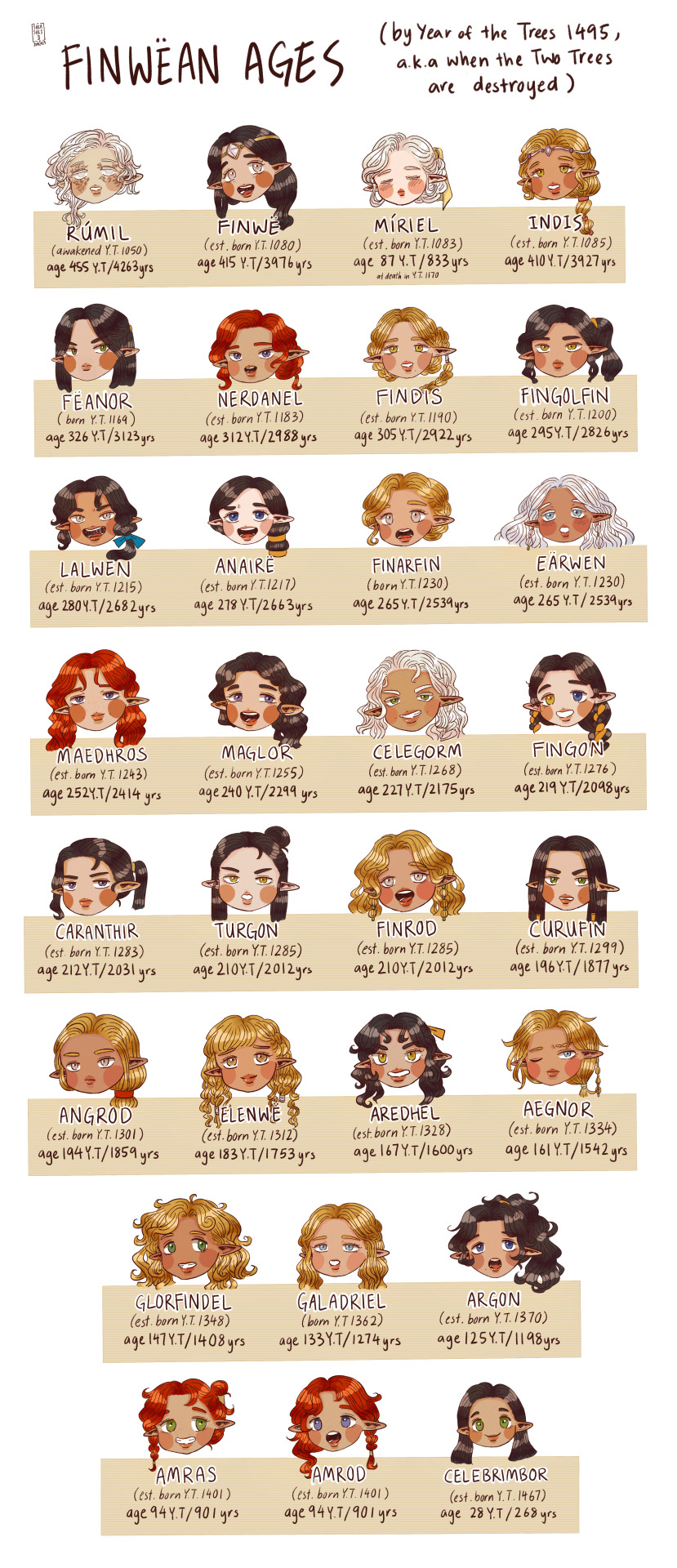
the First Age gets a lot more muddled from there due to the hullaballoo of everything going on, so ill only be including the doriathrim and a few other denizens of nargothrond:
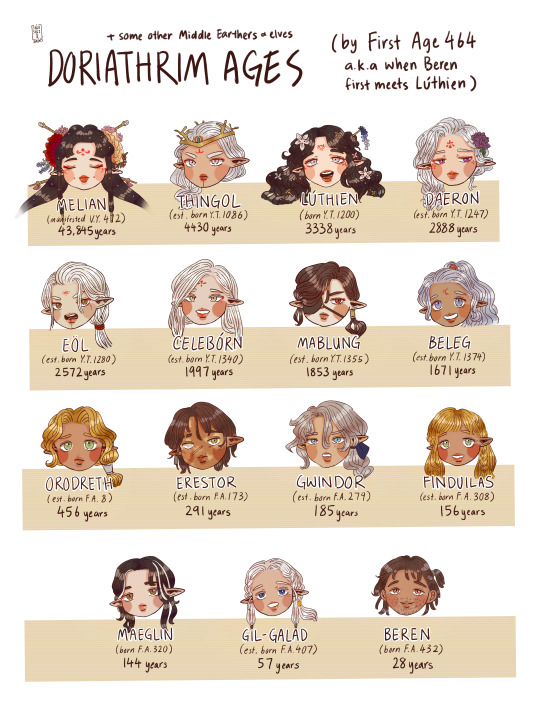
it's mostly the older elves that are more undefined/vague with their ages (i.o.w. others like elwing, earendil, the peredhil twins, and most Men all have set dates of birth), so they're all i'll be doing for now. but it's that vagueness which makes hcing all the more enjoyable, isn't it! plus since we’re on this subject, under the cut are just a few headcanons and musings ive had that i wanted to put somewhere 😙
Finarfin and Earwen were born within months of each other! Finwe and Olwe made a Really Big Deal out of when they found out their wives were pregnant at the same time. As a result, the two were often sent on many playdates with each other to “bolster healthy relations” between the Noldor and the Teleri. It wasn’t an arranged marriage situation, but I like to think they were goofy for each other from the start… Resulting in the two eventually getting married as soon as they came of age, the fastest out of all of Finwe’s kids to do so.
The reason the Ambarussa are significantly younger than the other Finweans (especially the Feanorians-- there’s a 100 Valian year gap between them and Curufin alone!) is because I imagine they were accidental babies that even Feanor didn’t expect to conceive. too bad morgoth said "its morgin time!" and started Messing Things Up shortly afterwards.....
Anaire was Lalwen's good friend long before she married Fingolfin; they met through Lalwen who wingmanned Fingolfin the whole time. i like think Anaire'd be the best out of all the wives at keeping good, healthy bonds with all the women of her family :DD
luthien's potential 姐姐/big sis dynamic with all the younger doriathrim elves is something i daydream about a lot 😌 but sometimes the fact that she's older than finarfin keeps me up at night
this has been really fun, so thanks again for asking-- annnd yessir, i am chugging water as i write this so you better be doing the same ❤️ have a great start to your week!
#silmarillion#rin replies#anon asks#house of finwe#the silmarillion fanart#if anyones confused: in my hc rumil is miriel's dad + elenwe and glorfy are siblings + and so are luthien and daeron :DD#and by FA 464 its been some years since erestor was enslaved but gwindor hasnt been captured in the nirnaeth yet#gilgal and maeglin are still babbbbies......#i might do a gondolin edition in the future alongside an end of the first age update once i figure out how to make it less confusing eghrh#feanorians#finweans#doriath#nargothrond#maedhros#maglor#feanor#luthien#thingol#finrod#sons of feanor#silm#silm art#headcanons#maeglin#eol#fingon#fingolfin#finarfin#finwe#nolofinweans
168 notes
·
View notes
Photo

Ambush
#silm#silmarillion#maedhros#balrog#edited because i posted the slightly wrong version at first whoops#random orange line has now been removed
158 notes
·
View notes
Text
Feanorian Eeveelutions









The art is not mine in any way, shape, or form. I simply made the edit.
Feanor - Eevee
Nerdanel - Vaporeon
Maedhros - Espeon
Maglor - Sylveon
Celegorm - Glaceon
Caranthir - Umbreon
Curufin - Flareon
Amrod - Leafeon
Amras - Jolteon
#the silm fandom#silmarillion#eeveeevolution#photo edit#feanor#nerdanel#maedhros#maglor#celegorm#caranthir#curufin#amrod#amras#eevee
56 notes
·
View notes
Text
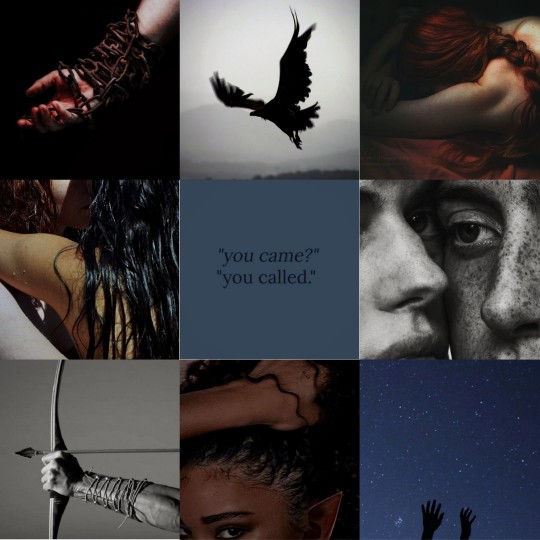
Russingon!!
Pride edit requests open🏳️🌈
#i dont like this one but oh well#they had to be included#theyre the best#maedhros#fingon#russingon#silmarillion#my edit#pride moodboard#pride edit#silmarillion edit#silmarillion moodboard
64 notes
·
View notes
Text
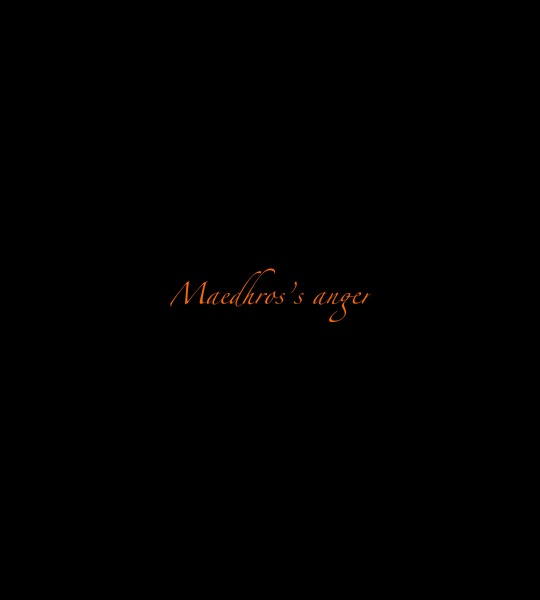



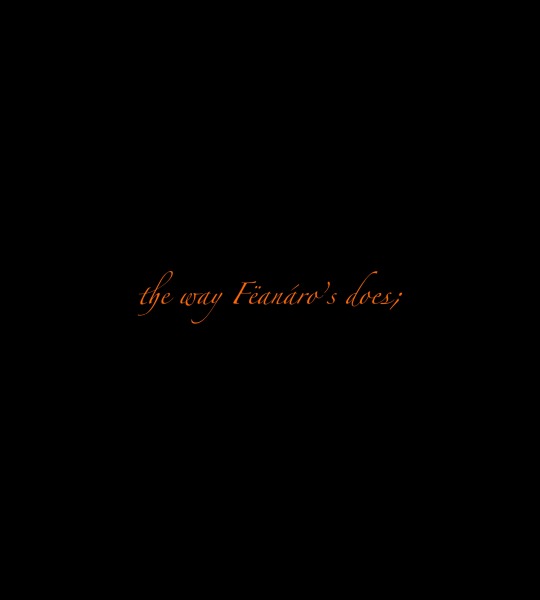
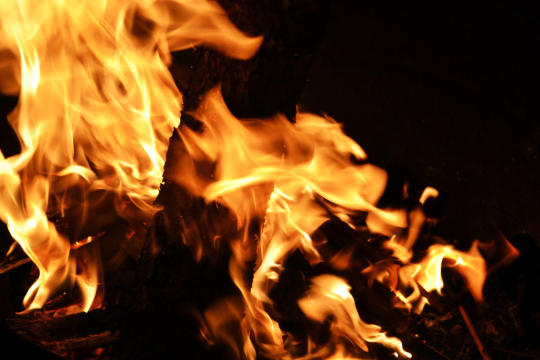

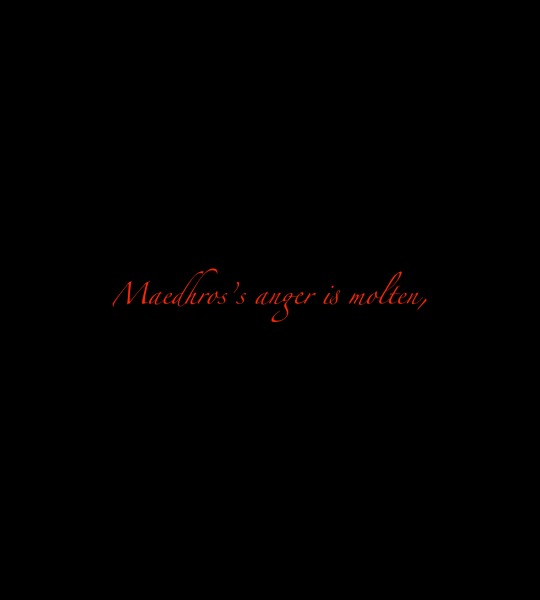



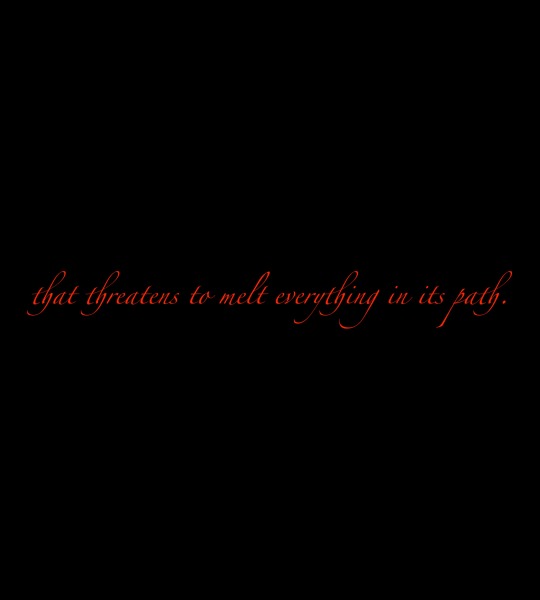
"Maedhros’s anger does not burn, the way Fëanáro’s does;
Maedhros’s anger is molten, a corrosive collapsing that threatens to melt everything in its path."
Quote from @chthonion's incredible fic "The Harrowing"
#chthonion if you want me to delete this just let me know and I'll do so.#This quote is amazing and explains so much about the two in such small space and with such beautiful imagery!#I have had this quote in my head for months since I first read the fic and I decided to actually do something with it#maedhros#feanor#silmarillion#silm#silm edits#(well technically not but it's close)
50 notes
·
View notes
Text
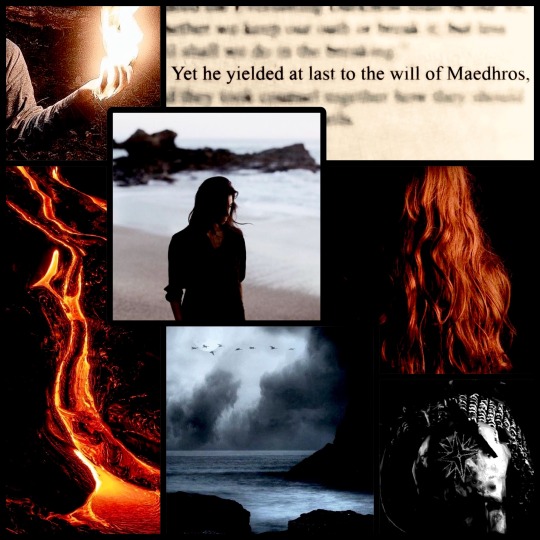
War of Wrath / weight of the decision to steal the Silmarils for @maedhrosmaglorweek, quote/concept suggestion from @mynameisjessejk
103 notes
·
View notes
Text









I like to make boards for Himring and the foothills of the Ered Engrin in the cold weather :) I mainly used boreal landscapes in Japan and Finland for this
x x x x x x x x x
98 notes
·
View notes
Photo






But Maedhros restrained his brothers, and they departed from the council, and soon afterwards they left Mithrim and went eastward beyond Aros to the wide lands about the Hill of Himring. That region was named thereafter the March of Maedhros for northwards there was little defence of hill or river against assault from Angband. There Maedhros and his brothers kept watch, gathering all such people as would come to them, and they had few dealings with their kinsfolk westward, save at need. It is said indeed that Maedhros himself devised this plan, to lessen the chances of strife, and because he was very willing that the chief peril of assault should fall upon himself.
-J.R.R. Tolkien, The Silmarillion, "Of the Return of the Noldor"
[ID: An edit consisting of six images.
1: The face of a black man with golden pupil-less eyes and a line of golden make-up on his forehead. Text says: "Maedhros, son of Feanor" / 2: A withered red rose / 3: Flames in the dark / 4: A person in black, holding a sword. Text says "Maedhros, son of Feanor" / 5: A black horse with leather headgear. Text says: "Maedhros, son of Feanor" / 6: A detail from a painting, showing patterned red fabric gathered on someone's arm / End ID]
#tolkienedit#silmedit#oneringnet#tolkiensource#mepoc#userindomiel#userlyndeth#usertoi#usersari#usertilions#the silmarillion#tolkien#silm#maedhros#🌟 edits#with id
149 notes
·
View notes